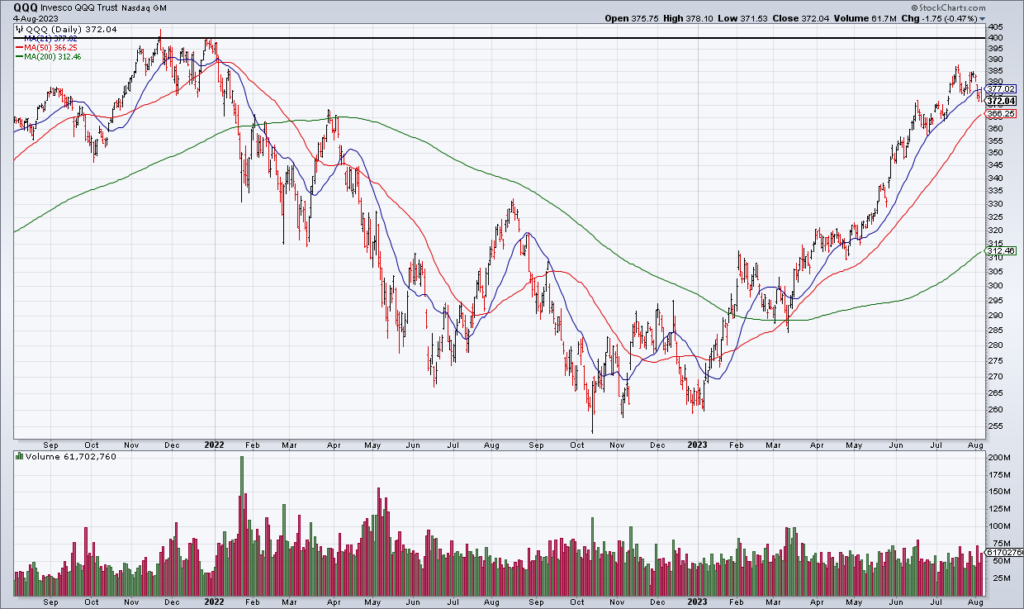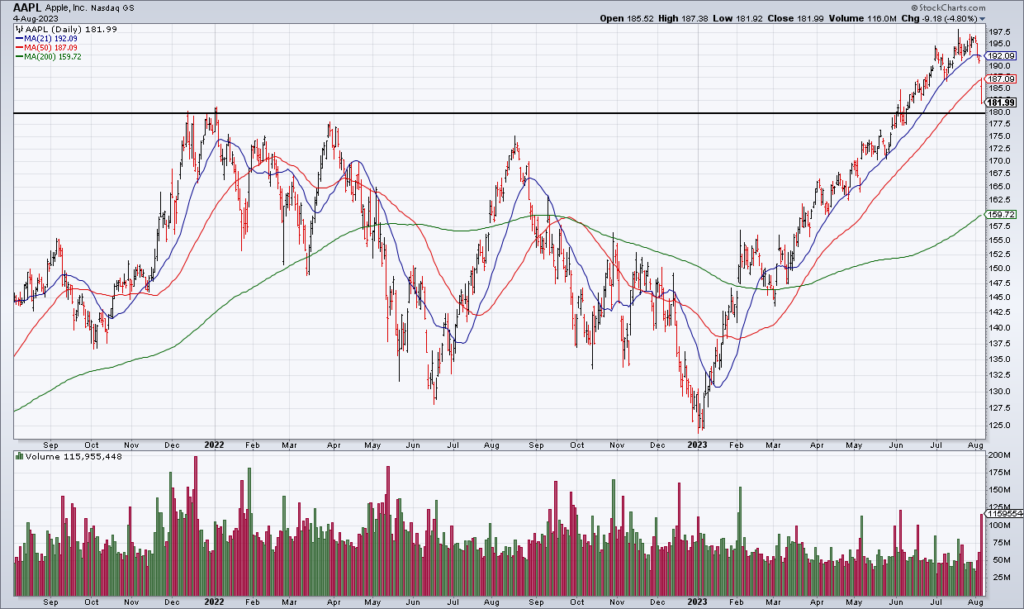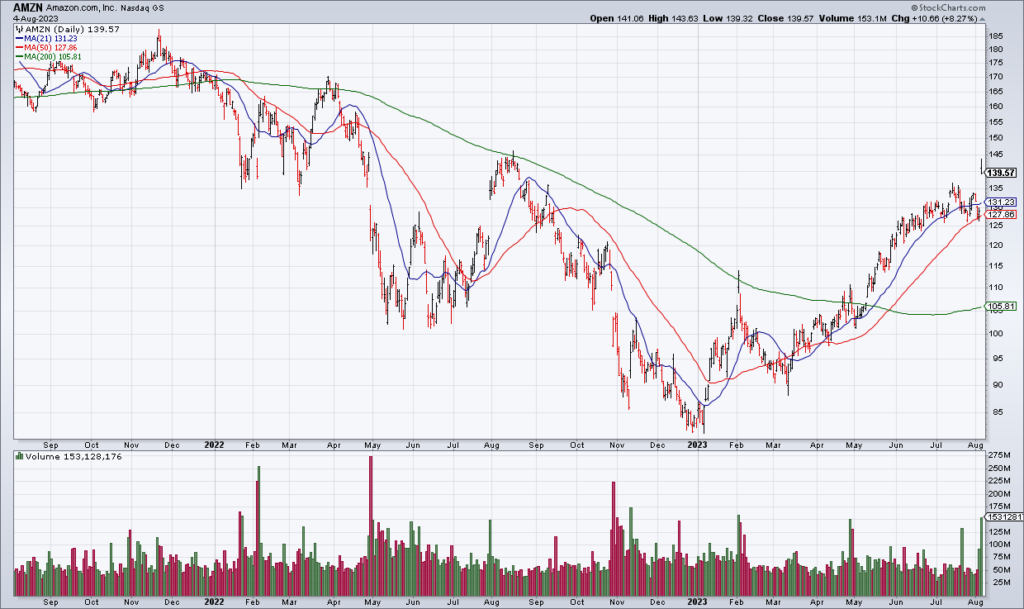Apple Zero And The Maturation Of Big Tech



Apple Zero is like the old Apple but without any growth – Eric Savitz, “Amazon Just Won Earnings Season. Apple Is Struggling” [SUBSCRIPTION REQUIRED], Barron’s, August 5
On Thursday afternoon, Apple (AAPL) reported a bad quarter while Amazon (AMZN) reported a good one. As a result, AAPL shares fell 5% on Friday while AMZN rallied 8%. Or so the story goes. (In addition to Savitz’s article, see Dan Gallagher, “Amazon Shines During Apple’s Off Season” [SUBSCRIPTION REQUIRED], WSJ, August 5).
In reality, AAPL fell short of expectations while AMZN beat them. What am I saying? I’m saying that the bigger story is the maturation of Big Tech. It’s not that AAPL is doing poorly while AMZN is doing well. It’s that Big Tech as a whole – AAPL AMZN GOOG/GOOGL MSFT META – is now mature. None of them have much growth at this point in their life cycles. For all the excitement over AMZN’s quarter, overall revenue grew just 11% and Amazon Web Services (AWS) – the gem of their portfolio – just 12%. While that was better than expected, it’s hardly explosive growth. (For AAPL’s anemic growth see “An Open Letter To Warren Buffett Re: AAPL”, Top Gun Financial, August 3).
Therefore, I want to add a second pillar to the bear case. The first pillar is that monetary policy acts with a lag and all of the Fed’s tightening has yet to be felt by the economy and markets. The second pillar is that Big Tech – which accounts for a large percentage of overall market capitalization and has been the driver of the indexes’ outsize gains since 2009 – is now mature and incapable of propelling the market higher. There will be a new bull market at some point – maybe we’re in it right now – but it will not be led by Big Tech. The new leaders will be the next crop of high growth stocks like Uber (UBER).
In conclusion: As the tightening of monetary policy continues to make its way through the economy and markets and Big Tech starts to be repriced from growth stocks to value stocks, stocks will be faced with the twin pillars of depressed growth and the repricing of its largest stocks. The combination suggests to me that the bear market is not over.
